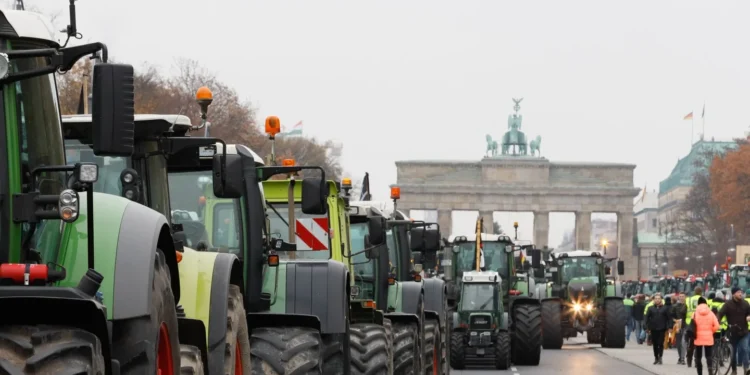EU Commission recommends changes to ease burdens, provide flexibility for farmers amidst protests over regulations and sustainability concerns.
The European Commission presented to review specific provisions of the Common Agricultural Policy in reaction to the farmer’s protests across Europe. The recommendations would “reduce the burden related to controls for EU farmers” and provide them more “flexibility for complying with certain environmental conditionalities,” the European Commission stated.
The provisions are in reaction to the dozens of farmers’ protests that have been taking place in several countries in Europe, including Spain, France, the Netherlands and Belgium. They are against EU regulations, desire to combat climate change, unrestrained imports from countries outside the bloc, and production expenses, among other things. The proposal “strikes the right harmony” between the CAP’s role in sustaining a transition to more sustainable farming and the needs of farmers, the Commission expressed. The revision would also include efforts to improve the situation of EU farmers in the food supply chain.
“The Commission is taking decisive and swift action to help our farmers in a time when they are dealing with multiple challenges and concerns,” President of the European Commission, Ursula von der Leyen, stated. “Today’s proposals – prepared in close cooperation with farmers, key stakeholders, our Member States and MEPs – deliver targeted flexibilities to help farmers do their important work with greater confidence and certainty, ” she added.
Over the last two months, Farmers have been protesting across the European Union, stating they are facing rising prices and taxes, red tape, excessive environmental regulations and competition from cheap food imports. Protests have been taking place for weeks in countries that include France, Germany, Belgium, the Netherlands, Poland, Spain, Italy and Greece.
While many problems are country-specific, others are Europewide.
Demonstrations in Eastern Europe have concentrated on what farmers say is unfair competition from enormous amounts of imports from Ukraine, for which the EU has waived quotas and obligations since Russia’s invasion. Polish farmers have been stopping traffic at the border with Ukraine, which Kyiv states is affecting its defence capability and supporting Russia’s aims.
Meanwhile, Czech farmers have moved their tractors into downtown Prague, disrupting traffic beyond the farm ministry.
The farmers resent the imports because they state they put pressure on European prices while not satisfying environmental standards imposed on EU farmers. Renewed negotiations to finish a trade deal between the EU and South American bloc Mercosur have also spread discontent about one-sided competition in sugar, grain and meat.
Farmers have problems with excessive regulation, especially at the EU level. The centre stage is new EU subsidy regulations, such as a condition to leave 4% of farmland fallow, which means not using it for some time. They also criticise bureaucracy, which French farmers say their government combinations by overcomplicating implementation.
In Spain, farmers have whined about the “suffocating bureaucracy” drawn up in Brussels that corrupts the profitability of crops. In Greece, farmers require higher subsidies and faster payment for crop damage and livestock lost in the 2023 floods. In Germany and France, the EU’s largest agricultural producers, farmers have railed against strategies to end subsidies or tax breaks on agricultural diesel. Greek farmers desire a tax on diesel to be reduced. In Romania, protests in mid-January were especially against the high cost of diesel.




